 5 citations,
January 2023 in “Fertility and sterility”
5 citations,
January 2023 in “Fertility and sterility” Doctors are preparing to potentially perform uterus transplants in transgender women, considering technical, hormonal, and ethical factors.
 5 citations,
February 2022 in “International Journal of Molecular Sciences”
5 citations,
February 2022 in “International Journal of Molecular Sciences” Different immune cells like platelets, mast cells, neutrophils, macrophages, T cells, B cells, and innate lymphoid cells all play roles in skin wound healing, but more research is needed due to inconsistent results and the complex nature of the immune response.
 5 citations,
October 2021 in “BioMed Research International”
5 citations,
October 2021 in “BioMed Research International” Noncrosslinked hyaluronic acid helps human hair cells grow and could be a potential hair loss treatment.
 5 citations,
June 2018 in “Records of Natural Products”
5 citations,
June 2018 in “Records of Natural Products” Garden cress extract may help treat skin inflammation and androgen-related disorders.
5 citations,
March 2016 in “Experimental and molecular pathology” Mice with alopecia areata had wider lymphatic vessels in their skin.
 5 citations,
January 2015 in “Dermatology”
5 citations,
January 2015 in “Dermatology” The report suggests that the same underlying issue in blood vessel support may cause angiokeratomas on both the scrotum and eyelids.
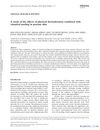 5 citations,
October 2014 in “Journal of cosmetic and laser therapy”
5 citations,
October 2014 in “Journal of cosmetic and laser therapy” Combining physical dermabrasion with chemical peeling is more effective for skin treatment than chemical peeling alone.
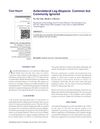 5 citations,
January 2014 in “International Journal of Trichology”
5 citations,
January 2014 in “International Journal of Trichology” Hair loss on the lower legs is common in middle-aged men, usually harmless, and doesn't need treatment.
 4 citations,
May 2023 in “JAAD case reports”
4 citations,
May 2023 in “JAAD case reports” Hyaluronic acid fillers for temporal lifting can cause hair loss without scarring.
 4 citations,
October 2022 in “Aesthetic surgery journal”
4 citations,
October 2022 in “Aesthetic surgery journal” Injecting hyaluronidase into the artery is effective for treating skin death and hair loss caused by hyaluronic acid fillers.
 4 citations,
June 2022 in “Journal of Cosmetic Dermatology”
4 citations,
June 2022 in “Journal of Cosmetic Dermatology” Multi-peptide factors from fibroblasts may stimulate hair growth by increasing growth factors and β-catenin in hair cells.
 4 citations,
September 2020 in “Journal of Cosmetic Dermatology”
4 citations,
September 2020 in “Journal of Cosmetic Dermatology” PRP treatment significantly increased hair density and thickness in male hair loss.
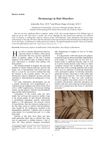 4 citations,
September 2012 in “Journal of Nanoscience and Nanotechnology”
4 citations,
September 2012 in “Journal of Nanoscience and Nanotechnology” Dermoscopy helps dermatologists diagnose different types of hair loss accurately without always needing a biopsy.
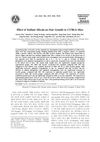 4 citations,
January 2010 in “Laboratory Animal Research”
4 citations,
January 2010 in “Laboratory Animal Research” Sodium silicate helped mouse hair grow similarly to a known hair growth treatment.
 4 citations,
October 2005 in “Pediatric Transplantation”
4 citations,
October 2005 in “Pediatric Transplantation” Pediatric transplant patients often experience unique skin changes mainly due to medication use.
 3 citations,
October 2023 in “Military Medical Research/Military medical research”
3 citations,
October 2023 in “Military Medical Research/Military medical research” Regulatory T cells help heal skin and grow hair, and their absence can lead to healing issues and hair loss.
 3 citations,
January 2023 in “Materials horizons”
3 citations,
January 2023 in “Materials horizons” The new biomaterial helps grow blood vessels and hair for skin repair.
 3 citations,
November 2022 in “Facial plastic surgery & aesthetic medicine”
3 citations,
November 2022 in “Facial plastic surgery & aesthetic medicine” Using ultrasound to guide temple filler injections improves safety and accuracy.
 3 citations,
April 2021 in “Chemical & Pharmaceutical Bulletin”
3 citations,
April 2021 in “Chemical & Pharmaceutical Bulletin” Extracts from the Calanthe discolor plant promote hair follicle growth and increase growth factor levels.
 3 citations,
January 2021 in “Journal of Bioscience and Bioengineering”
3 citations,
January 2021 in “Journal of Bioscience and Bioengineering” Sweet potato shochu oil and its components may effectively promote hair growth.
 3 citations,
January 2018 in “Food Science and Technology Research”
3 citations,
January 2018 in “Food Science and Technology Research” Wasabi compound may help promote hair growth.
 3 citations,
January 2017 in “Yonsei Medical Journal”
3 citations,
January 2017 in “Yonsei Medical Journal” Blocking 11β-HSD1 can lessen the harmful effects of glucocorticoids on hair growth cells.
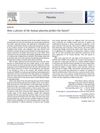 3 citations,
October 2010 in “Placenta”
3 citations,
October 2010 in “Placenta” The shape and size of the placenta may help predict future health risks for both mother and child.
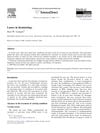 3 citations,
March 2008 in “Medical laser application”
3 citations,
March 2008 in “Medical laser application” Lasers have become safer and more effective for treating skin problems and hair removal.
 2 citations,
January 2024 in “Proceedings of the National Academy of Sciences of the United States of America”
2 citations,
January 2024 in “Proceedings of the National Academy of Sciences of the United States of America” The research created a detailed map of skin cells, showing that certain cells in basal cell carcinoma may come from hair follicles and could help the cancer grow.
2 citations,
December 2022 in “International journal of molecular sciences” Plucked hairs can be used instead of skin biopsies to study hair traits because they contain specific cells related to hair.
 2 citations,
November 2022 in “Scientific reports”
2 citations,
November 2022 in “Scientific reports” Using gelatin sponges for deep skin wounds helps bone marrow cells repair tissue without scarring.
 2 citations,
April 2022 in “Journal of Cosmetic Dermatology”
2 citations,
April 2022 in “Journal of Cosmetic Dermatology” Camellia seed cake extract helps hair grow by affecting cell growth and growth factor levels.
2 citations,
May 2020 in “Research Square (Research Square)” Stem cells from diabetic mice can still help heal wounds effectively.
 2 citations,
January 2020 in “International Journal of Cosmetic Science”
2 citations,
January 2020 in “International Journal of Cosmetic Science” Niacinamide does not promote hair growth.



























